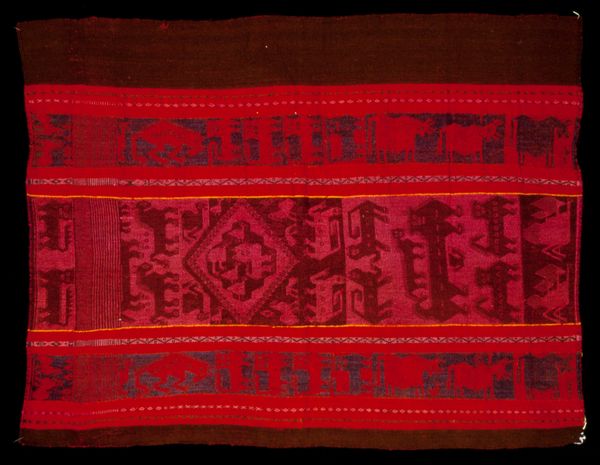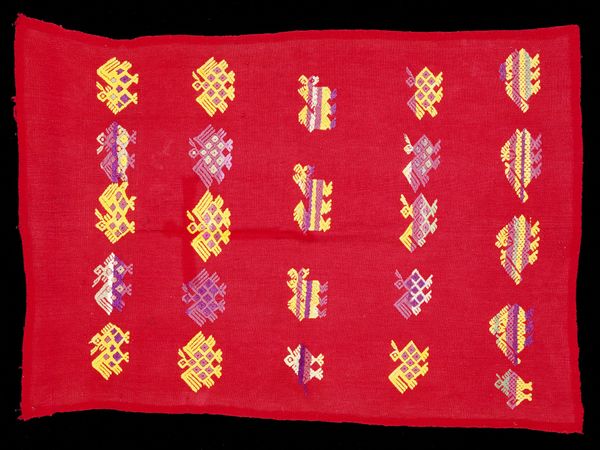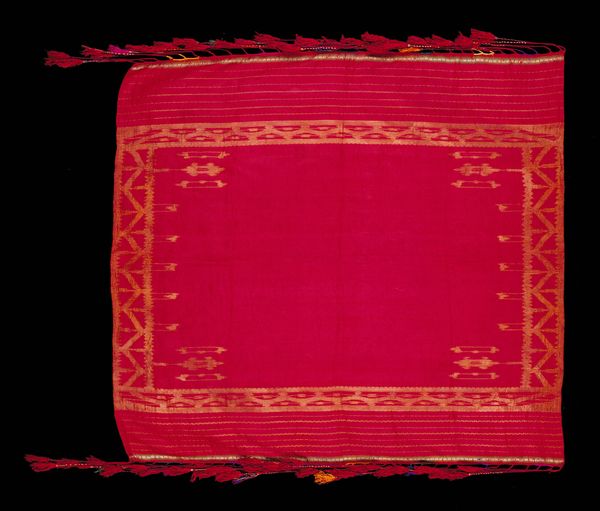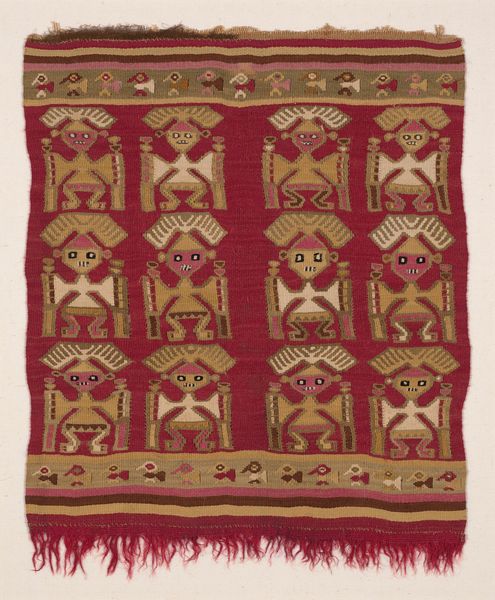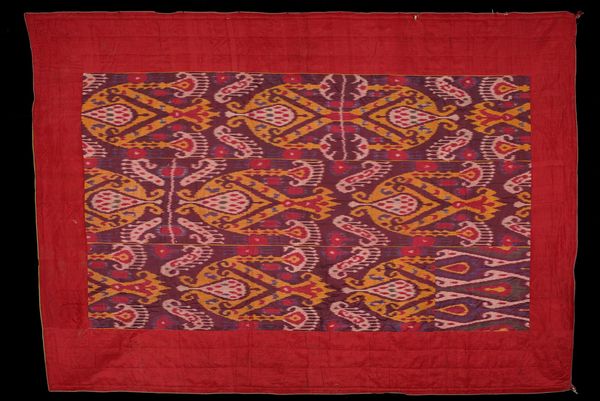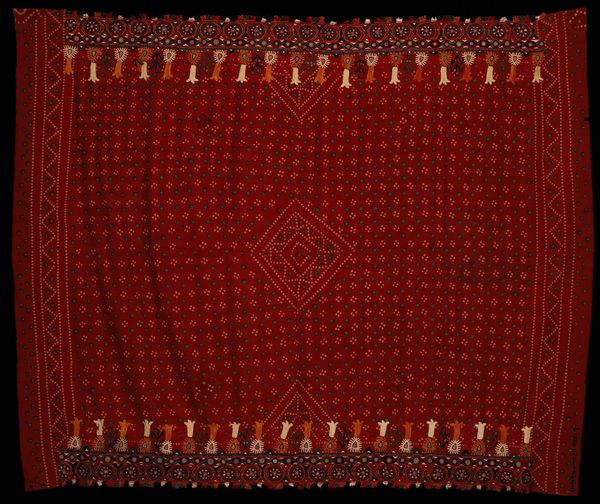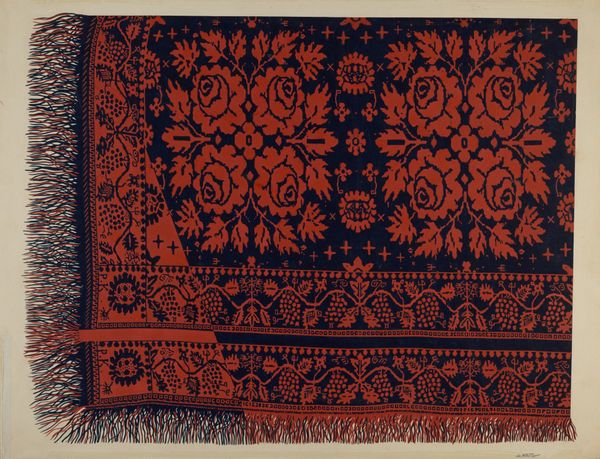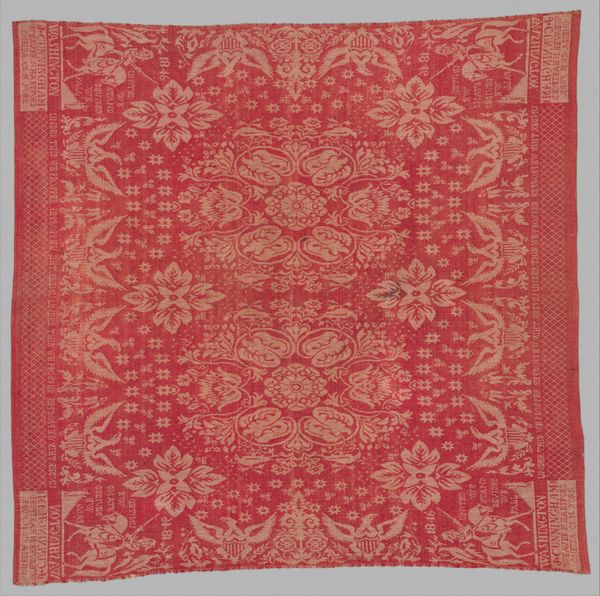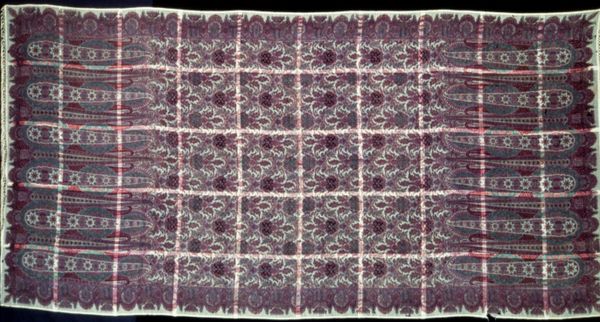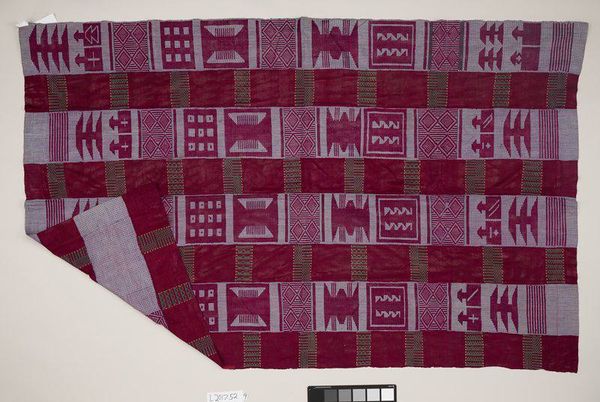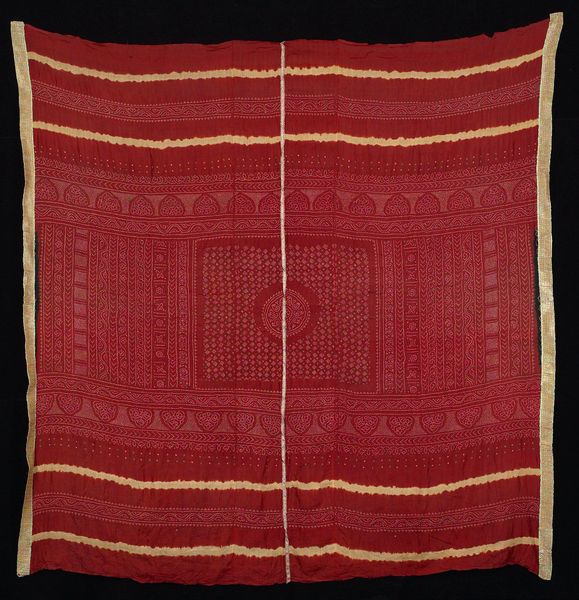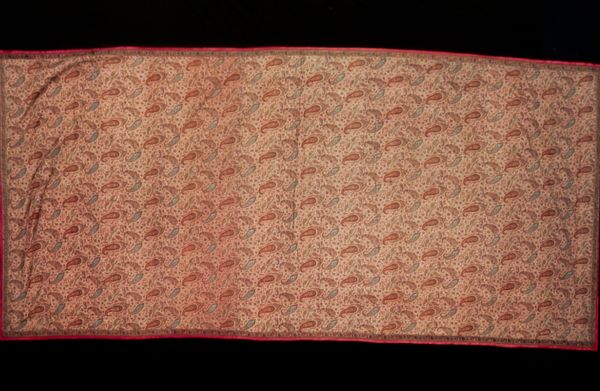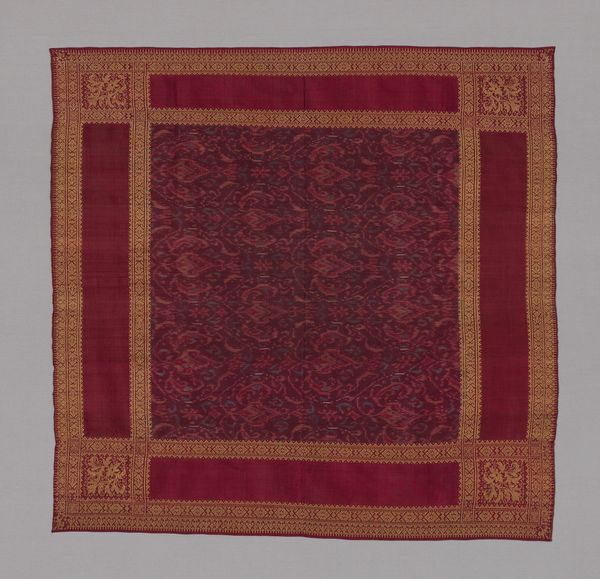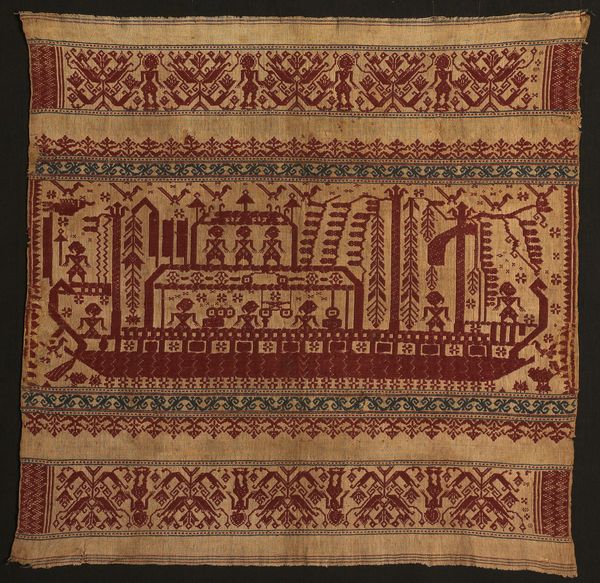
weaving, textile
#
weaving
#
textile
#
geometric pattern
#
geometric
#
indigenous-americas
Dimensions: 22 3/4 x 28 1/4 in. (57.8 x 71.8 cm) (irregular)
Copyright: Public Domain
Editor: Here we have a Quechua textile, a “Woman’s Ceremonial Half Overskirt (aksu)” dating from around the 20th century, currently residing here at the Minneapolis Institute of Art. Looking at it, the red and dark brown patterns are so vibrant and seem to vibrate off of the textile! It's very visually energetic! What strikes you when you see it? Curator: It calls to mind, surprisingly, a bustling city skyline. Look how the geometric patterns stack, repeat, almost like stylized buildings! Of course, these aren't literal depictions; it's far more interesting, isn't it, a feeling, an echo of lived experience woven into the fabric? It begs the question, what sort of urban or natural landscape informed the artisan’s sense of rhythm? Or, is that too romantic a reading, perhaps? Editor: No, I see what you mean. The patterns do mimic structures and maybe landscapes, but rendered almost abstractly. The "buildings" repeat and interlock. But the fact it’s a garment too. Does that shift your view at all? Curator: Absolutely. Function elevates the form; each thread becomes intention, a tiny stitch of community and heritage. We go beyond surface appeal. These are not simply shapes, or just a red half skirt—they embody the wearer's spirit, becoming symbols of life. One might even ponder whether wearing something that intense, something vibrating so energetically…perhaps, it even altered the wearer’s presence? Editor: That’s really fascinating. I hadn’t considered that a garment could shift a person’s way of being, beyond just what others see. Thanks so much! Curator: It's been my pleasure. Maybe our next piece will offer up even wilder possibilities!
Comments
minneapolisinstituteofart about 2 years ago
⋮
This textile is an overskirt known as an aksu, which would have been worn similar to an apron over a full skirt or dress. The large, plain swath of fabric at the top edge was tucked into a belt to keep the aksu in place. Weavers of the Potolo region are particularly known for their vibrant animal designs, featuring birds, deer, dogs and mythical, dragon-like creatures, as seen on this example. The Potolo region is also cold, being 15,000 feet above sea level, so these overskirts provided warmth as well as decoration to the wearers.
Join the conversation
Join millions of artists and users on Artera today and experience the ultimate creative platform.
